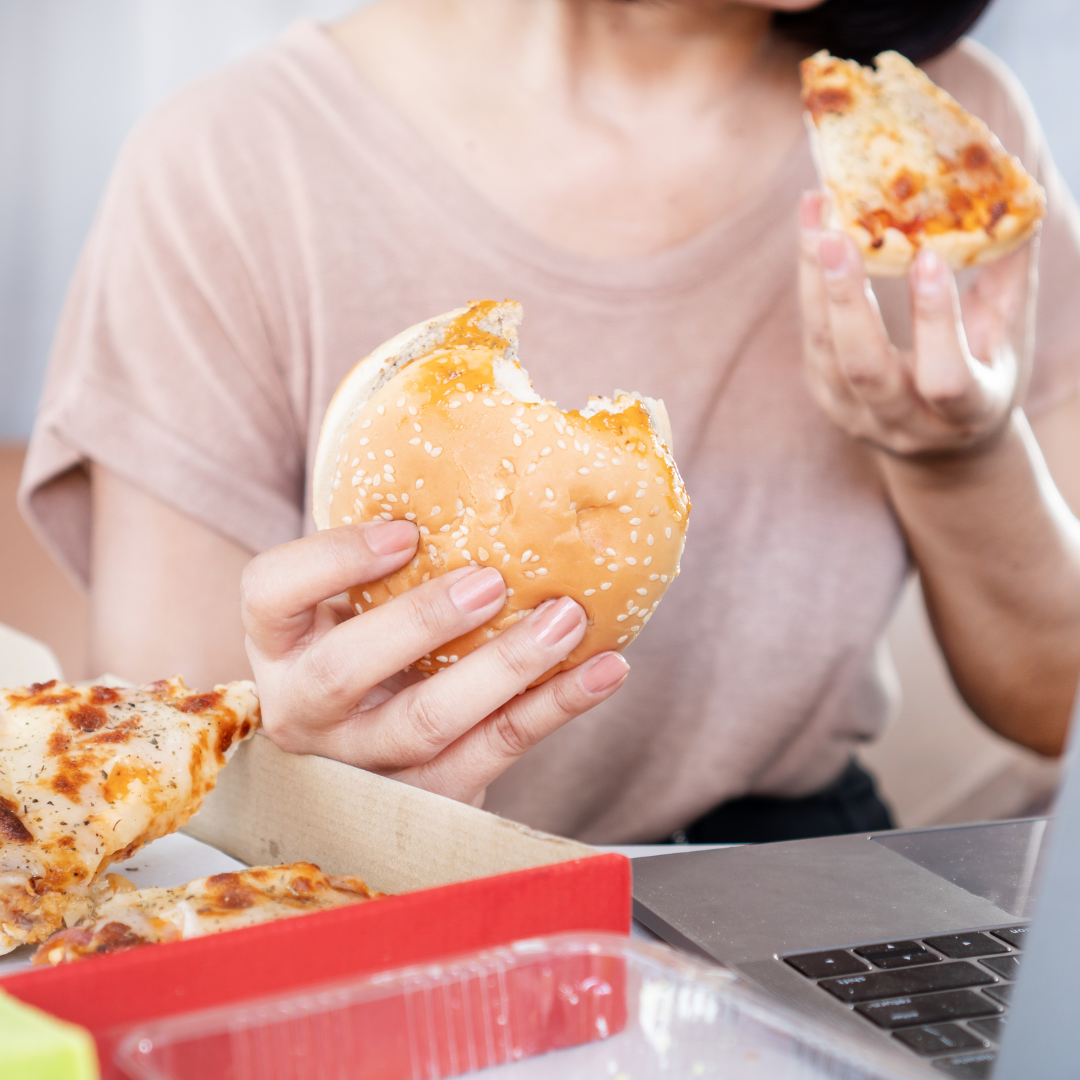“I open the pantry doors, and I sort of barricade myself behind them so no one can see me, and I just quickly eat the whole thing before anyone notices.”
I appreciated that she was opening up to me and asking for advice, it takes a lot to be vulnerable like that… but in truth, I had one eye on the clock. She wasn’t a client, it was just a casual conversation, and I was in a hurry.
“Okay,” I stated, trying to think of some quick advice without delving too deep into her particular situation. “Let’s talk about mindful eating. Basically this is taking joy in your food. So you put it on a plate, you make a cup of tea or whatever, you sit down at the table, you put your phone away, and you totally focus on enjoying your food. If you want more when you’ve finished your plate, you just get more. There’s no judgement, just enjoyment.”
I guess it was okay-ish advice. Mindful eating is important and can dramatically improve the enjoyment of food and reduce binge eating. But honestly, I didn’t put much thought into it.
Looking back, I wish I had.
When I gave that advice, I utterly failed to put in a big, fat caveat: you won’t be able to do this all the time. Mindful eating just isn’t going to be an option for every single meal and snack of the day, every single day of the week. Sometimes you’ll need to grab something on the run. And that’s okay. Just try to have one meal of the day mindfully and go from there.
In neglecting to say this, what I was really failing to address was her all-or-nothing thinking and how it related to food.
Years later, as she struggled her way through binge eating disorder recovery, we spoke again.
For a week or two after I told her to eat mindfully, she did really well. She sat down for every meal and was never distracted by her phone or other tasks, and those were the perfect, good days. She practically walked around with a halo.
But the minute she had to quickly eat a banana in the car while driving the kids to school, in her mind she had ruined the day’s mindful eating. It was a “Well, fuck it” moment. She would then spiral completely, binging on junk food, eating while doom scrolling socials, sometimes not even joining the kids at the dinner table.
For her, there was only perfect success, or absolute failure. If she had ruined the day, she was going to ruin it big time and just start again tomorrow. It was all about perfection, not progress.
And that is no way to live. She slowly went downhill, beating herself up every time she ate mindlessly. The catastrophising thoughts ate away at her. If she couldn’t even eat mindfully, then what kind of mother was she? She was setting a terrible example for the kids. And what kind of wife hid food wrappers and receipts from her husband? She was a awful person. She didn’t deserve happiness…
Sound familiar?
If you’re a perfectionist, chances are you can relate. Black and white thinking is common among us perfectionists. Perfectionism can be a wonderful thing, but when it comes to food, it can be disastrous. Because you know what else is common among perfectionists? Eating disorders.
I learned my lesson big time with that non-client. These days, I never give any mindful eating advice, or indeed any nutrition advice at all, without being crystal clear that there is no such thing as eating perfectly, and so perfection isn’t a goal when it comes to food.
With some of my perfectionist clients, I also give out homework assignments that seemingly have nothing to do with food. (In reality, they are like the warm up before we work on food). So here’s one for you to try out.
If you often use words like “Always”, “Never”, “Should”, “Every” or “Must”, start to replace those words with softer language. For example, use the word “Often” instead of “Always.”
Then move on to listing out some unhelpful thoughts and reframing them in a softer way. “I’m useless” becomes “I’m only human.” “This is ruined” becomes “It’s not perfect, but I can learn from my mistakes and try again.”
Life isn’t black and white. We live in the grey in all areas of life, including what and how we eat. All or nothing thinking can destroy your relationship with food. But it can also be changed. You won’t get it perfect every day, but you’ll slowly get better at it.
If you’re like the non-client in this story, who struggled with emotional eating and all or nothing thinking, you’ll find my 7-Day Emotional Eating Detox Plan really helpful. It’ll kickstart your journey to a new mindset around food. One that embraces progress over perfection.

